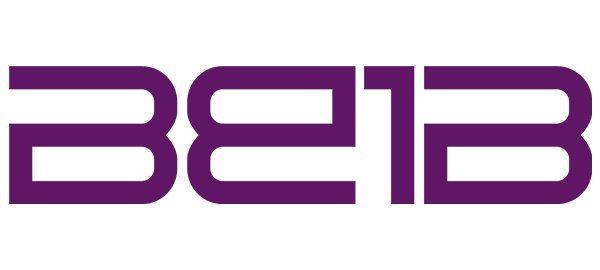The shift toward e-invoicing in Europe is no longer optional. Driven by the EU’s goal to reduce VAT fraud, increase transparency, and digitise tax reporting, multiple European countries are introducing mandatory e-invoicing laws between 2025 and 2028.
Whether you’re a multinational or a freelancer, understanding your country’s requirements—and acting early—will be critical to avoiding disruptions.
Why E-Invoicing in Europe Is Becoming Mandatory
E-invoicing allows tax authorities to receive invoice data in real-time or near real-time, reducing VAT gaps and simplifying reporting for businesses. Unlike traditional PDFs, structured e-invoices use formats like XML or UBL, making them machine-readable and easier to process automatically.
The European Union’s VAT in the Digital Age (ViDA) initiative further underscores the push toward digital reporting and e-invoicing, aiming for harmonized requirements across member states by 2030.
Country-Specific E-Invoicing Europe Mandates
🇪🇸 Spain
Spain will require mandatory e-invoicing under the Ley Crea y Crece legislation, aimed at combating tax fraud and modernising business invoicing.
- From 2026: All businesses will be required to issue structured electronic invoices. Larger companies will comply first, followed by SMEs and self-employed professionals shortly after.
- From January 2026: Corporate taxpayers must use certified invoicing software under the VeriFactu system to submit invoices directly to the Spanish tax agency (AEAT).
From July 2026: Self-employed and smaller businesses must comply with VeriFactu as well.
🇫🇷 France
France has established a clear roadmap to mandatory e-invoicing for all B2B transactions:
- From 1 September 2026: Large companies and mid-sized businesses must issue and receive e-invoices via the government’s public platform or accredited partners.
- From 1 September 2027: SMEs and micro-enterprises will be required to comply.
- All businesses must be able to receive e-invoices by September 2026.
France uses a dual system, requiring businesses to register with the Portail Public de Facturation (PPF) or connect via a Partner Dematerialisation Platform (PDP).
🇧🇪 Belgium
Belgium has confirmed mandatory e-invoicing for B2B transactions starting in 2026:
- From 1 January 2026: All VAT-registered businesses in Belgium must issue and receive electronic invoices in the PEPPOL BIS standard.
- This extends Belgium’s existing requirements for e-invoicing in public procurement to all business-to-business transactions.
Preparation should be underway as this mandate is final and binding.
🇵🇱 Poland
Poland’s national e-invoicing system, KSeF, uses a clearance model requiring invoice validation before delivery.
- From 1 February 2026: Companies with annual turnover exceeding PLN 200 million must comply.
- From 1 April 2026: All other companies must start using KSeF for issuing invoices.
Integration with KSeF requires timely technical preparation.
🇳🇴 Norway
Norway requires e-invoicing for public sector suppliers and is moving toward broader B2B mandates:
- E-invoicing is already mandatory for B2G transactions via the PEPPOL EHF format.
- Mandatory e-invoicing for B2B is expected to come into force around 2025–2026.
- Widespread voluntary adoption of PEPPOL e-invoicing among Norwegian businesses means many are already compliant.
🇸🇪 Sweden
Sweden introduced mandatory e-invoicing for public procurement in 2019 and is advancing toward B2B mandates:
- The government is consulting on plans to require B2B e-invoicing likely from 2025–2026.
- Sweden’s use of PEPPOL BIS 3.0 ensures alignment with EU-wide standards.
What This Means for Your Business
The e-invoicing Europe mandates are coming fast. Implementation isn’t just about compliance—it affects operations, payments, and client relationships. Waiting too long puts your business at risk of:
- Non-compliance risks include penalties, delayed payments, loss of trading partners, and operational disruptions.
- Technical integration, process updates, and staff training will take time—starting now is critical.
- Many countries require businesses to register on specific platforms or adopt certified invoicing software.
Stay Ahead of E-Invoicing Europe Regulations with The HUB by Be1B
To help businesses of all sizes comply with e-invoicing Europe requirements, we’ve built The HUB: A centralised platform where businesses can sign up and send e-invoices for free.
With The HUB, you can:
- Send e-invoices in all required formats: PEPPOL BIS, UBL, XML, and more.
- Connect directly with national platforms like AEAT (Spain), with France, Poland, and more countries on our integration roadmap.
- Avoid costly third-party software or custom integrations.
- Ensure you’re always compliant with the latest technical and legal standards.
- Onboard your team quickly with built-in guidance.
- Get up and running quickly, with no subscription fees.
Whether you operate in one country or across Europe, e-invoicing Europe is your new normal. Don’t wait until the last minute. Get ready now and stay ahead of e-invoicing mandates with the HUB.




